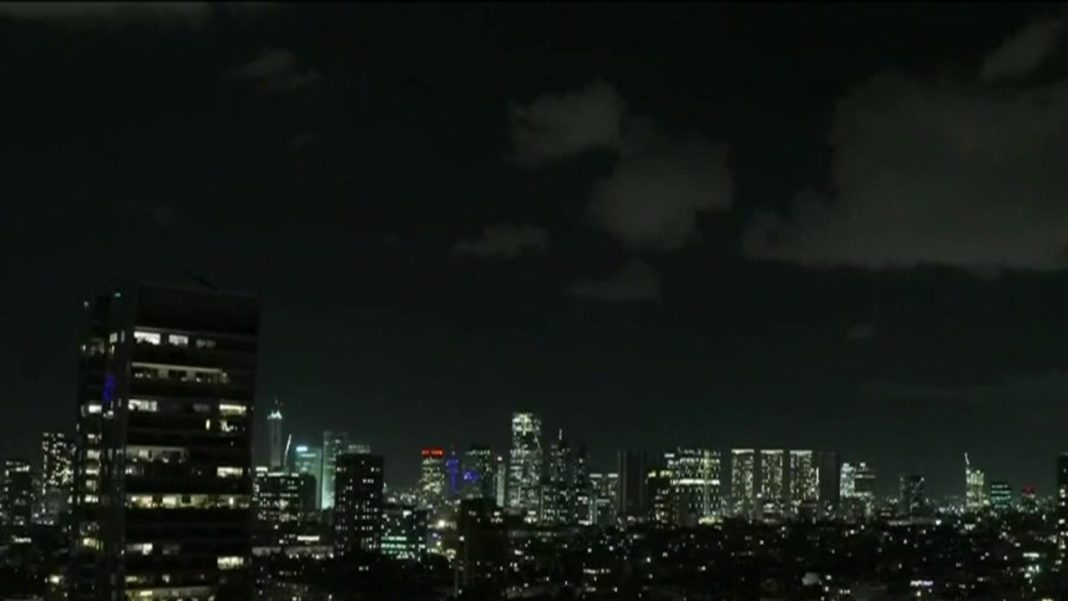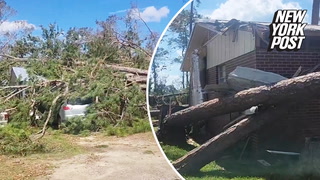As tensions simmer in the Middle East, the recent escalation between Israel and Hezbollah has drawn the world’s attention, particularly in light of Iran’s involvement. The Israeli military reported an alarming development on Tuesday: missiles fired from Iran targeted Israel, prompting widespread air raid sirens across the country. In a bid to ensure public safety, residents were instructed to remain near bomb shelters—a stark reminder of the region’s precarious security situation.
The unfolding conflict is not merely a local skirmish but raises concerns about a broader regional war. The United States and Israel have both issued stern warnings to Iran, indicating that any assaults would invite severe repercussions. “The Iranian strike could be widespread,” cautioned Israeli military spokesman Rear Adm. Daniel Hagari, emphasizing the critical importance of adhering to safety protocols to protect civilian lives.
This latest round of hostilities follows a day of rocket and missile attacks originating from Lebanon, where Israel has initiated limited ground operations. Reports indicate that Israeli airstrikes have targeted southern Lebanese villages, leading to evacuations and an intensifying battle against Hezbollah militants, who have responded with rocket fire into Israeli territory. As the conflict escalates, fears mount that it could evolve into a larger confrontation involving various regional powers.
A senior official from the White House has underscored the gravity of the situation, noting that U.S. military assets are positioned in the region to support Israel if necessary. This strategic deployment reflects the high stakes involved, with both countries closely monitoring Iran’s military activities. The historical context of Iran’s previous missile attacks on Israel cannot be overlooked; in April, Iran launched a direct assault, though most projectiles failed to hit their targets due to interception by a U.S.-led coalition.
Despite Hezbollah’s denials of Israeli incursions into Lebanon, the Israeli army has reported ongoing ground raids aimed at disrupting Hezbollah’s operations. These raids, described as localized, are part of a broader strategy to dismantle the group’s military capabilities, including tunnels and weaponry. The implications of these operations could be significant, particularly given Hezbollah’s reputation as a formidable armed force in the region, backed by Iran.
With the civilian population in southern Lebanon bearing the brunt of the conflict, Israel has issued evacuation orders extending to areas north of the Awali River, suggesting a potential shift in military strategy. The recent Israeli airstrike near Beirut, which damaged a residential building close to the Iranian Embassy, further illustrates the escalating nature of the conflict and the blurred lines between military objectives and civilian safety.
As the situation develops, Israel has imposed new restrictions on public gatherings in northern and central regions, emphasizing the urgency of protecting citizens from potential rocket attacks. The Israeli military has called up thousands of reserve soldiers to bolster defenses along the northern border. These measures reflect a heightened state of alert, as the conflict with Hezbollah continues to escalate.
In the backdrop of these developments, the humanitarian impact of the conflict is increasingly evident. Reports indicate that over 1,000 people in Lebanon, including a significant number of women and children, have lost their lives due to Israeli strikes in the past two weeks. The ongoing violence has also led to the displacement of hundreds of thousands, creating a dire humanitarian crisis as European nations begin to withdraw their citizens and diplomats from Lebanon.
The interplay of military strategy and regional politics is complex, with each escalation raising the specter of a wider conflict involving Iran and the United States. As both Hezbollah and Hamas—each backed by Iran—continue to engage in hostilities against Israel, the specter of a larger war looms ominously over the Middle East. The last significant confrontation between Israel and Hezbollah in 2006 ended in a stalemate, but both sides have spent years preparing for what could be a more devastating showdown.
In summary, the situation in the Middle East is not just a series of military engagements; it is a multifaceted crisis that intertwines the fates of nations, armed groups, and civilians alike. As the conflict escalates, the need for diplomatic solutions becomes increasingly urgent, underscoring the importance of international efforts to address the underlying issues fueling this enduring strife.

